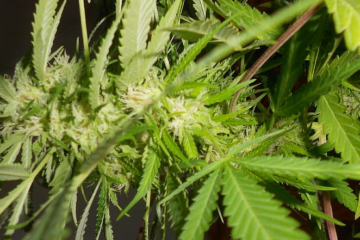In a groundbreaking move, the federal government is considering reclassifying cannabis from a Schedule I to a Schedule III drug. This shift could redefine how cannabis is perceived legally, but what does it mean for those holding or seeking security clearances? Let’s explore the implications of this potential change.
A Historical Perspective on Cannabis Classification
Cannabis has had a tumultuous journey in the United States. Once widely accepted for medical use in the 1800s, it faced a dramatic shift in 1937 with the Marihuana Tax Act, which criminalized its use. Fast forward to today, and many states have embraced legalization for medical or recreational purposes, yet federally, cannabis remains a Schedule I drug, categorized alongside substances like heroin and LSD.
The recent push for rescheduling has gained momentum, especially after President Biden’s 2022 request for a review of cannabis’ federal status. This initiated a thorough examination involving the Department of Justice, the Drug Enforcement Administration (DEA), and the Department of Health and Human Services (HHS). HHS has acknowledged credible scientific evidence supporting cannabis for medical use, particularly for chronic pain, but the final decision rests with the DEA.

What Rescheduling Won’t Change
While the potential rescheduling of cannabis is significant, it’s crucial to clarify what it won’t accomplish. Rescheduling does not equate to descheduling; cannabis will still be federally regulated. Here are some key points to consider:
- Availability: Cannabis won’t suddenly be available over-the-counter at local stores.
- Regulatory Hurdles: Researchers and businesses may face fewer administrative challenges.
- Tax Implications: Changes in tax regulations for the cannabis industry could occur.
For security clearance holders, this distinction is vital. Federal employees remain subject to federal law, which still categorizes any illegal drug use, including marijuana, as a potential disqualifier for security clearance.
The Rules for Clearance Holders
For those in the security clearance community, adhering to federal standards regarding drug use is non-negotiable. Even if cannabis transitions to Schedule III, clearance holders must remain vigilant. Here’s why:
- Legal Status: Marijuana remains illegal under federal law. Rescheduling may alter its classification, but it doesn’t change its legal status.
- Agency Policies: Federal agencies, like those at Aberdeen Proving Ground, have made it clear that cannabis use is incompatible with holding a clearance. Federal employees must comply with federal law, regardless of state-level legalization.
- National Security Concerns: Drug use can expose clearance holders to risks of blackmail or coercion, which are serious national security threats.
If you’ve recently used marijuana, even in a state where it’s legal, it could impact your clearance process. The move to Schedule III won’t erase past use from your record or alter the government’s stance on substance misuse.
The Current Landscape and Its Implications
As societal attitudes toward cannabis evolve, there’s a noticeable trend of individuals opting for cannabis over alcohol for recreational use. However, for those in the clearance community, this choice comes with significant risks. The potential rescheduling of marijuana has sparked a national conversation about its use, making it essential for clearance holders to stay informed.
- Career Repercussions: Engaging in cannabis use could jeopardize your career in federal service.
- Informed Choices: Understanding the implications of cannabis use is crucial for maintaining eligibility for security clearance.
While rescheduling cannabis may signal a shift toward recognizing its medical benefits, it does not grant clearance holders the freedom to use it without consequences. As long as cannabis remains illegal federally, compliance with established guidelines is paramount for protecting both careers and national security.



